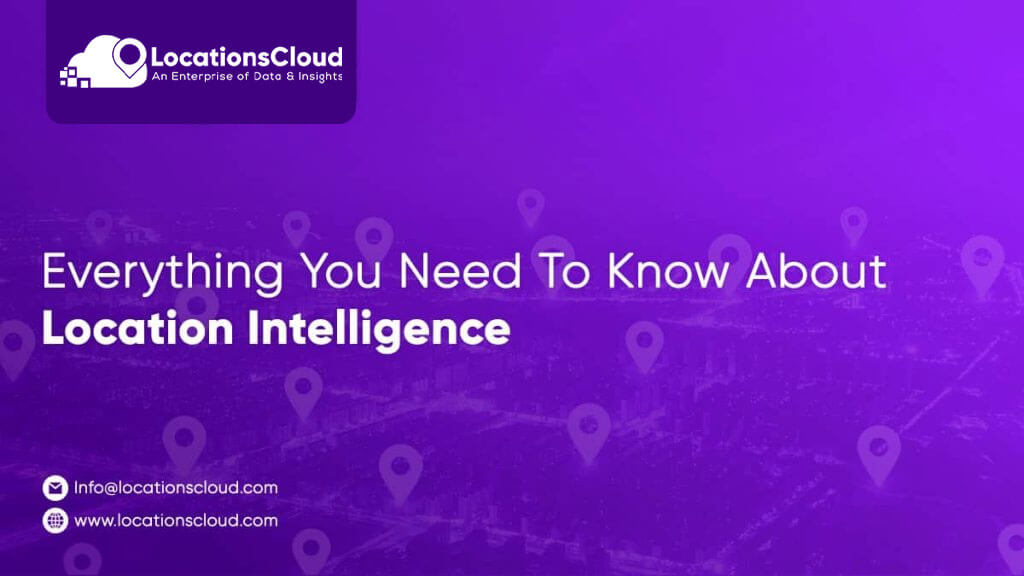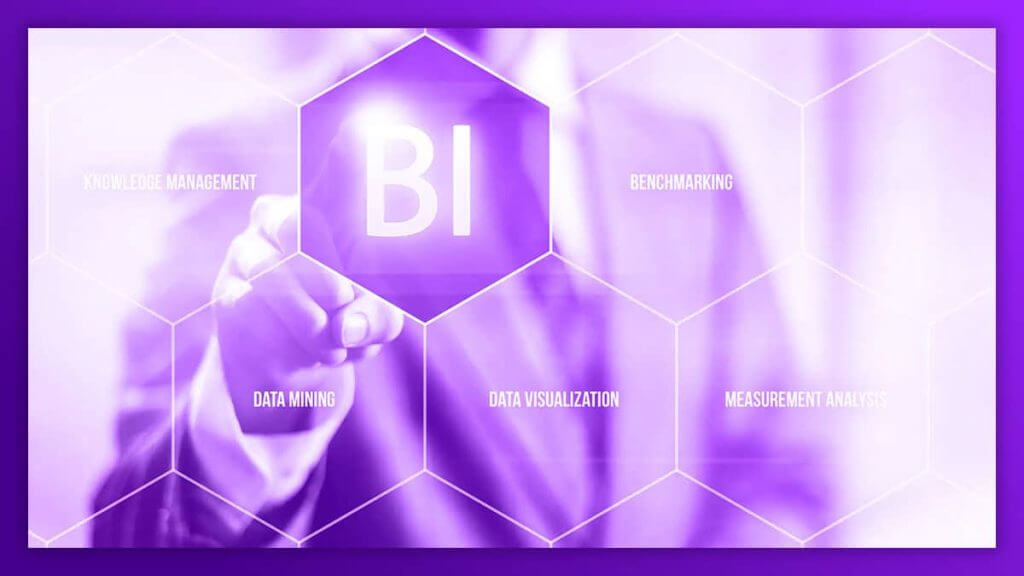
The approach of obtaining insights from Store Location Data. It is to address spatial questions. This is known as location intelligence (LI). LI goes beyond simple map-based data visualization. It is to analyze location data as a crucial component of a societal or business issue.
Location Intelligence: An Introduction
Location intelligence, abbreviated as LI, is a methodology. It is the process of extracting insights from location data. It helps to get answers to spatial questions. Visualization and geospatial data analysis form the bedrock of location intelligence. The latter enhances the understanding. It provides insights into, and helps prediction of pertinent questions. It is related to space, time, maps, people, societal problems, and even business concerns.
Many organizations have begun co-opting GIS technology to create location intelligence, It is revolutionary. It allows stakeholders to add layers of geographic data (demographics, traffic, weather, etc.). It is to a smart map and arrive at metric-based conclusions. Especially where an event has occurred. It is why it has taken place, what its causes are, and more. Let us look at the groups that reap the highest benefits from location intelligence.
Location Intelligence: The Primary Stakeholders
Location intelligence has all-encompassing benefits. It can bolster organizations of diverse backgrounds. It can assist in solving an array of socioeconomic problems. In addition, location intelligence is crucial for community success. Here are some of the pertinent benefits. It is what five disparate groups can extract from location intelligence are –
Business/retail – Executives, business managers, and operations can co-opt location intelligence. It will help to find optimal ‘locations’ in retail site selection. The technology can also help manage assets in real time. It will help maintain or repair vital infrastructure.
Financial Services – Location intelligence enables stakeholders from the financial sector. It is to optimize branch locations. It can delve into market and industry analysis, perform risk management, and more.
Government – Some of the crucial ways governmental domains can use location intelligence. This includes census updates, urban planning, emergency response, law-enforcement crime analysis, and more.
Health and Wellbeing – Location intelligence can be strategically used. It will help to manage community problems pertaining to health. They are such as the spread of diseases. In addition, public and private organizations can co-opt the technology for site selection. It is vis-à-vis infrastructural (hospitals and clinics) development, growth assessments, etc.
Education – Location intelligence can enable educational institutions. It is to hunker down on student recruitment and alums and donor tracking. Moreover, the technology can also be appropriated for campus mapping.
We have done crisp overview of the various uses of location intelligence. It is for different stakeholders. Now, let us dabble further into the topic.
Business Intelligence (BI) V/S Location Intelligence (LI) – The Differences

Business Intelligence (BI) and Location Intelligence (LI) might seem similar. This is what it might seem to an untrained eye. However, they have distinct differences that deserve acknowledgment. What are they? Let us find out!
Data Focus – In Business Intelligence (BI), the focus is on temporal (time-related) data. And maps are occasionally used. Location intelligence (LI) revolves around the location-first analysis.
Analysis – Platforms premised on Business Intelligence (BI) visualization. They will illustrate pre-processed sets of results on a map. Location intelligence enables the repeated analysis of multiple interactive data layers.
Typical User Actions – In Business Intelligence (BI), there are some typical lingo used.
They include ‘zooming,’ ‘filtering,’ and ‘printing.’
In location intelligence, users talk about analyzing, predicting, and augmenting. And also publishing interactive results.
Questions Answered – Business Intelligence (BI) attempts to answer the questions. It is ‘where things’ are and ‘what happened’ – for a business. Contrarily, location intelligence strives to explain the why behind the questions. For example, location intelligence would try to find an answer. It is why sales plunged by 10 percent in specific locations. Also, how weather conditions influenced store footfall, etc.
The Functions of Location Intelligence
Location intelligence is based on visualizing and analyzing gargantuan volumes of data. It is when placed in the context of location. The result can facilitate holistic planning and prediction. It can help in problem-solving for various sectors. It is from retail to real estate, finance to education. The insights attained from location intelligence can reveal conspicuous relationships. They can find patterns, and trends and help varying stakeholders. It is to get a competitive edge. Some of the significant functions of location intelligence pertain to –
- Addressing the climate crisis
- Facilitating business decisions
- Operational intelligence in commercial real estate and retail
- Advancement of sustainability and equity by the government sectors
- Understanding customer behavior vis-à-vis Quick service restaurants (QSI)
- Identification of traffic patterns and improving route optimization for logistics
- Improved supply chain management for pharmaceuticals
The Six Trends Related to Location Intelligence
Now we have an elemental idea of locational intelligence. So, it is time to wrap up the article by examining some current trends. It is around location intelligence.
1. Real-Time Data Availability
The availability of real-time data is pertinent for location intelligence use cases. Faster 5G connectivity with increasing bandwidth has paved the path for real-time data. It can be extracted from mobile phones. In addition, social media posts also have location data attached to them. It is one which offers real-time contextual insights.
2. Mushrooming of New Use Cases
Location intelligence is no longer the purview of established business bigwigs. Now, upcoming industries, governments, and welfare organizations are co-opting location intelligence. It is for more profound real-world use cases.
3. Smart City Planning
Location intelligence provides actionable insights to public and private real estate stakeholders. It is to recognize patterns and make well-thought-out decisions. Location intelligence will potentially help in crucial areas of city planning. They are transportation, natural disaster, park preservation, and more. For instance, city planners worldwide are leveraging location intelligence data. It is to understand traffic patterns. It can help devise solutions for transit problems with novel transportation construction.
4. COVID-19 Crisis Management
The COVID-19 Pandemic has ushered in an era of unprecedented changes. One of the major alterations observed is the increasing demand. It is for geographically relevant information. For example, location intelligence and GIS data have helped governments and medical authorities. It is to create dynamic COVID-10 dashboards. They are such as the one made by John Hopkins University or India’s Cowin Application.
The two dashboards are known to continuously provide updated information and key statistics. It is about active COVID-19 cases, recovery rates, testing facilities, vaccines, etc.
Likewise, location intelligence data and AI-based platforms will help to gauge trends. It will make swift and informed decisions and take the right actions. It will be premised on real-time data to curb the spread of the Coronavirus.
5. Personalized Customer Experience
Another major trend in location intelligence is its co-option. It is within the retail and restaurant industry. Location intelligence has enabled the retail and restaurant sector. It is to provide a rich customer experience. They are tailored brand messaging to the right clientele. A Forbes survey reveals that 75 percent of retailers trust location intelligence. They believe it is indispensable. It is for business growth and profiteering.
6. Disaster Management
Another pertinent trend related to location intelligence is its use in disaster management. In today’s day and age, adequate management of disasters requires real-time data. They need analysis on something that can provide. LI information can be deployed. It is to facilitate the multiple phases of disaster management. They are prevention, mitigation, response, and relief.
Wrapping It Up
So, there we have it. It is a comprehensive overview of Location Intelligence and its significance in 2023. It is a transformative technology with vivid possibilities for an assortment of stakeholders. Every industry can co-opt location intelligence. It is from governments to retailers to real estate, and educational hubs. It is to churn out data-backed actionable insights. It is to usher in revolutionary changes. It can benefit individuals, groups, and the collective society.



